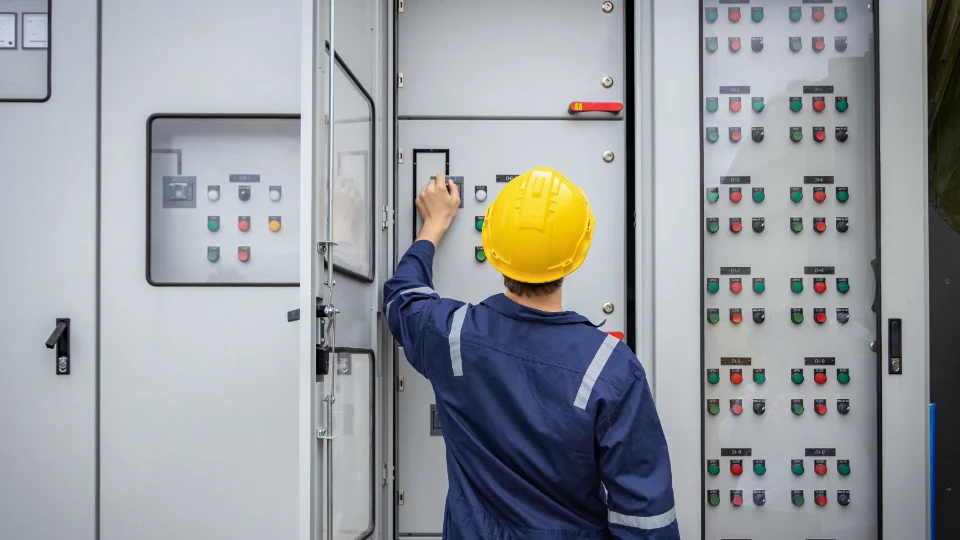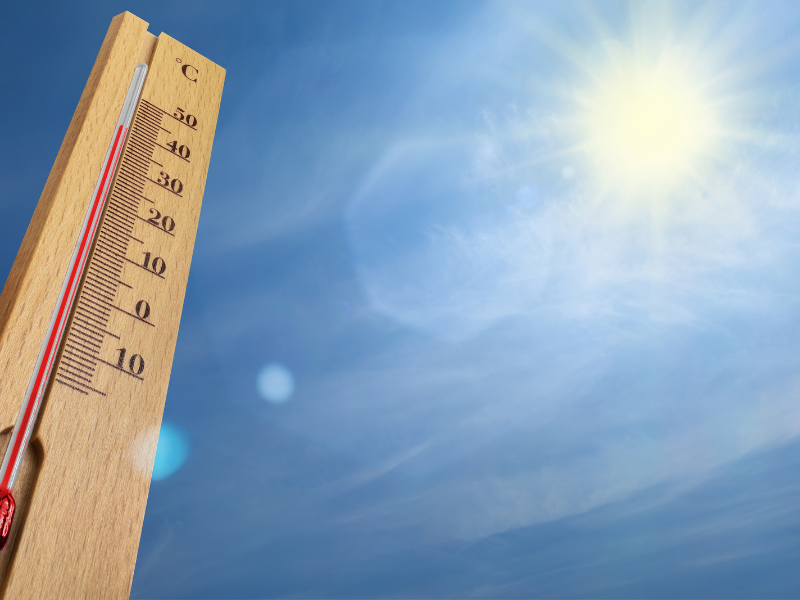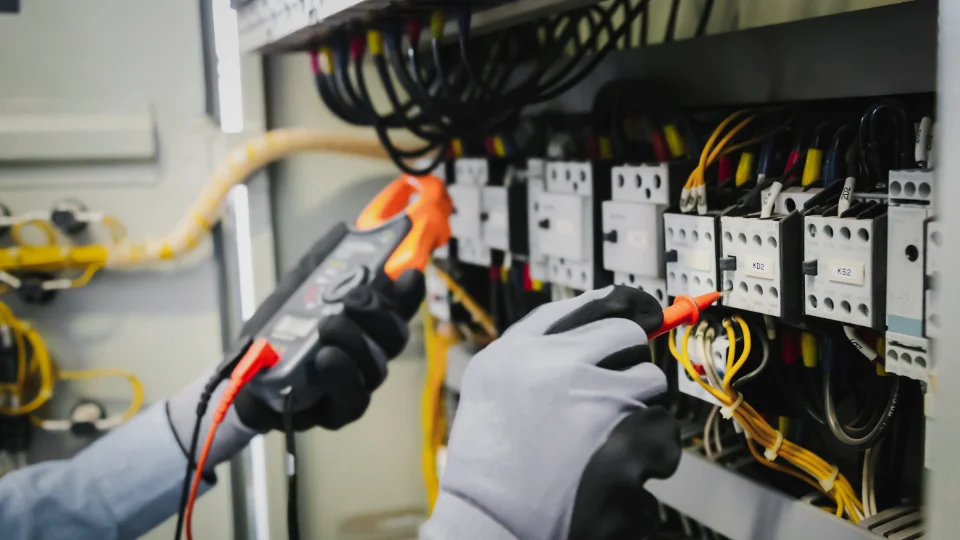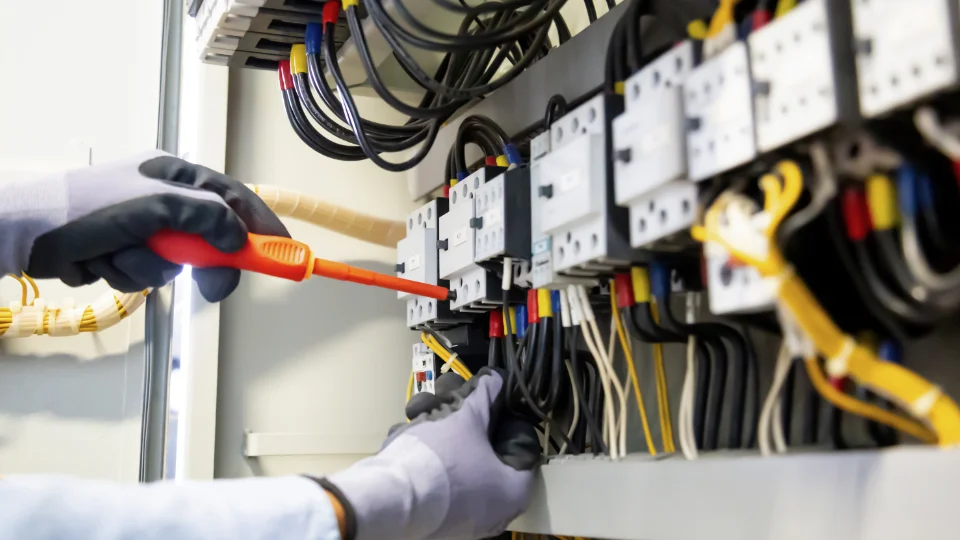
How Weather Impacts Commercial Electrical Systems

As a commercial property manager, you’re already juggling maintenance, safety, and operational concerns. But one factor that often flies under the radar—until something goes wrong—is the weather’s effect on your electrical systems. From summer heatwaves to winter freezes and storm season in between, weather can quietly compromise your infrastructure, leading to costly downtime, safety hazards, and emergency repairs.
Understanding how different weather conditions affect commercial electrical systems can help you proactively manage risk, avoid disruptions, and protect your property’s long-term value.
Heat and Humidity: Silent Strain on Your System
High temperatures and humidity are a double threat to electrical infrastructure. Excessive heat can cause wires to expand, insulation to degrade, and electrical panels to overheat—particularly in older buildings with outdated systems. Over time, this thermal stress increases the risk of short circuits, breaker trips, and even electrical fires.
Humidity adds another layer of risk. Moisture can penetrate electrical enclosures, leading to corrosion of terminals and connectors. In HVAC systems, condensation buildup near electrical components can create dangerous shorts or failures, especially if drainage is poorly managed.
Tip for Property Managers: Regularly inspect breaker panels, wiring insulation, and rooftop HVAC units for signs of heat damage or corrosion during the warmer months.
Cold Weather: Hidden Vulnerabilities
Freezing temperatures may seem less dangerous than extreme heat, but they come with their own set of electrical issues. Cold weather can cause materials like copper and aluminum wiring to contract, loosening connections inside panels and junction boxes. This leads to arcing, sparking, and increased fire risk.
Additionally, snow and ice buildup can affect exposed outdoor wiring and conduit systems. Heavy ice can crack protective sheathing or damage fixtures, particularly lighting and signage. If ice melts and refreezes inside electrical enclosures, it can cause internal damage that’s not immediately noticeable.
Tip for Property Managers: Schedule winter-specific inspections, especially for rooftop units, exterior lighting, and systems exposed to the elements.
Storms and Lightning: Power Surges and System Damage
Electrical storms pose one of the most obvious and dramatic threats to commercial systems. A direct lightning strike can cause catastrophic damage, but even nearby strikes or sudden voltage fluctuations can fry sensitive components—especially servers, security systems, and automated building controls.
Surges during storms also affect internal systems. Fluctuating voltage can shorten the lifespan of motors in HVAC units, pumps, and elevators, leading to unexpected failures and downtime.
Tip for Property Managers: Invest in commercial-grade surge protection and backup power systems. Uninterruptible Power Supplies (UPS) and surge suppressors can prevent costly losses during a power event.
Flooding and Water Intrusion
Whether it’s from hurricanes, torrential rain, or plumbing failures, water and electricity are a dangerous combination. Floodwaters can short out entire electrical systems, especially when they reach underground service panels or basements where electrical infrastructure is often housed.
Even after floodwaters recede, moisture left behind can lead to long-term corrosion and failure of electrical components. In extreme cases, properties may need full electrical system replacements after severe flooding.
Tip for Property Managers: Make sure critical systems are elevated when possible and have electrical professionals evaluate damage after any major water event—never assume that “dry” means “safe.”
Wind and Flying Debris
Strong winds from hurricanes or severe storms can topple utility poles, rip down conduit, and damage exterior lighting. Flying debris poses an unpredictable threat to everything from roof-mounted solar panels to parking lot lighting.
Tip for Property Managers: After major wind events, schedule a full walk-through of the property, checking all outdoor electrical installations, including signage, lighting poles, and generator housings.
The Importance of Preventative Maintenance
The best way to defend your electrical systems from weather-related damage is through preventative maintenance. Routine inspections, timely upgrades, and protective installations (like weatherproof enclosures and surge protectors) all play a critical role in keeping your systems resilient year-round.
Partnering with a licensed, experienced electrical contractor ensures your systems are not only up to code but built to withstand the specific weather challenges in your region.
Contact Bates Electric Today!
With over 40 years of experience and a presence in multiple states, Bates Electric understands how climate and weather patterns affect commercial properties. Our team offers comprehensive electrical services—from preventative maintenance and surge protection to emergency response and full system upgrades.
Don’t wait for the next storm to find out where your property’s weak spots are. Let us help you identify and fix them now—before weather turns a minor issue into a major problem.
Share:
Social Media
Most Popular


2025 Trends in Commercial Electrical Services

Power Backup Solutions for Business Continuity

Planning Electrical Systems for New Constructions
Categories
Related Posts

How to Reduce Energy Costs with Electrical Efficiency Upgrades
Rising energy costs are a concern for many commercial property owners and facility managers. Electrical systems play a major role in overall operating expenses, and

Preparing Your Facility for an Electrical Safety Audit
Why Electrical Safety Audits Matter An electrical safety audit is not something facilities should view as a one-time obligation. It is a practical check that

2025 Trends in Commercial Electrical Services
As businesses continue to grow and adapt to new technologies, the demand for reliable, efficient, and scalable electrical systems is higher than ever. Commercial electrical

Power Backup Solutions for Business Continuity
Power outages aren’t just an inconvenience, they’re a risk to your operations, your equipment, and your bottom line. Businesses today depend on uninterrupted access to
